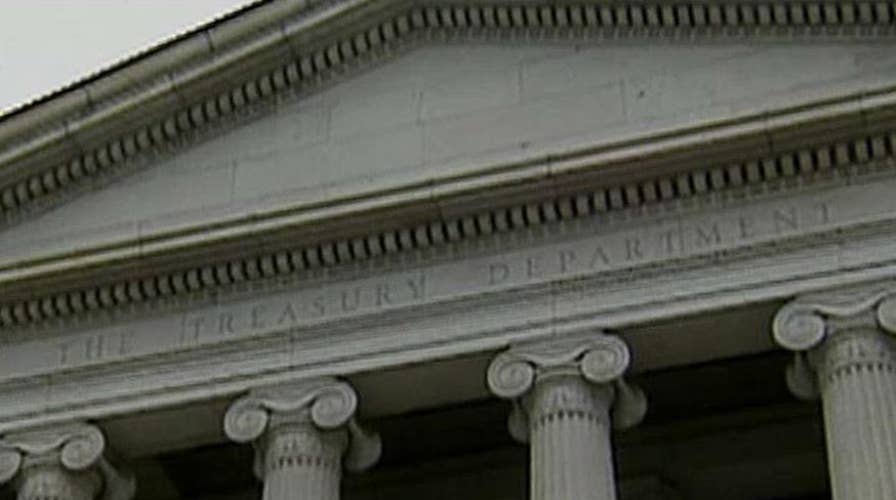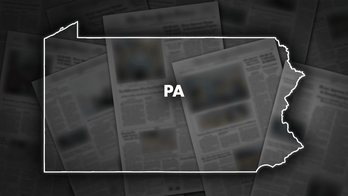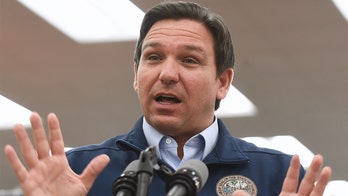US sent another $1.3 billion to Iran after initial payment
Kristin Fisher reports from Washington, D.C.
House Republicans pressed Obama administration officials at a tense hearing Thursday to explain why a controversial $1.7 billion payment to Iran did not constitute “ransom” -- which they warned could find its way into the pockets of terrorists.
The hearing, one of several planned in coming weeks, marked the first time Obama administration officials appeared before a congressional panel to answer questions on the payment.
House Financial Services Committee Subcommittee on Investigations Chairman Sean Duffy, R-Wis., said they only appeared “under threat of subpoena” and neither State nor Treasury department officials have responded to document requests made more than a month ago.
Clearly frustrated, Duffy frequently cut off witnesses while inquiring whether they could guarantee funds were not used for terrorism -- and whether American hostages would have been released had the money not been paid.
“There is a risk you have taken in providing $1.7 billion to the leading state sponsor of terrorism in the world,” Duffy said, adding that it “makes it difficult to believe” that it was not ransom.
The administration recently acknowledged having paid Iran $1.7 billion in early 2016 entirely in hard foreign currency. Officials say this was to settle a decades-old arbitration claim, but GOP lawmakers maintain it was effectively "ransom" paid to secure the release of four Americans.
Ranking Democratic Rep. Al Green charged the hearing was part of a plan to undermine President Obama, while California Democratic Rep. Maxine Waters said all the committee members were offered classified briefings, but only one received one.
Republicans remained focused on why the money was paid in cash, which is the preferred method of payment of terrorists.
Officials said cash payments were an efficient way for the U.S. to give the Iranians “immediate access” to the funds.
"I can't speak for every dollar that goes in and out of Iran, as you know," said Christopher Backemeyer, a deputy assistant secretary of state for Iranian affairs, although he argued “the vast majority” was spent to address "critical economic needs" in Iran.
The initial Jan. 17 payment was delivered to Iran on the same day as the release of four American prisoners, including Pastor Saeed Abedini and Washington Post reporter Jason Rezaian.
Congressional officials told the Wall Street Journal that the remaining $1.3 billion was paid in two more installments delivered on Jan. 22 and Feb. 5, days after the initial release of prisoners.
Full committee Chairman Jeb Hensarling of Texas demanded to know why payment was made specifically in cash and how it has not "put a price on the head of every tourist, soldier, airman and marine who serves or visits overseas."
The payment "was the best way to avoid a possible decision from the tribunal ordering us to pay a lot more," said Lisa Grosh, a legal adviser in the State Department’s Office of International Claims and Investment Disputes.
In an August press conference, Obama said the $400 million payment had to be made in cash because no banking relationship at all existed between the two nations.
Grosh admitted that non-cash payments had been made to Iran previously.
“Even in the absence of this explicit license in the Iranian Transactions and Sanctions Regulations, the president has authority under the International Emergency Economic Powers Act to authorize banks to facilitate these transactions. Indeed, nearly 3,000 special licenses are granted every year for sales of food, medicine, and other humanitarian-related goods into Iran,” testified Mark Dubowitz, executive director of the Foundation for Defense of Democracies.
In addition to hearings, Republicans in Congress are moving forward legislatively to prevent further "ransom" payments to Iran.
House Foreign Affairs Committee Chairman Ed Royce, R-Calif., introduced a measure intended to prevent similar cash payouts to Iran. Sen. Marco Rubio, R-Fla., has a similar bill to stop the Treasury Department from sending payments from its Judgment Fund to Iran until the regime returns the money it received and pays American victims of Iranian terrorism.





